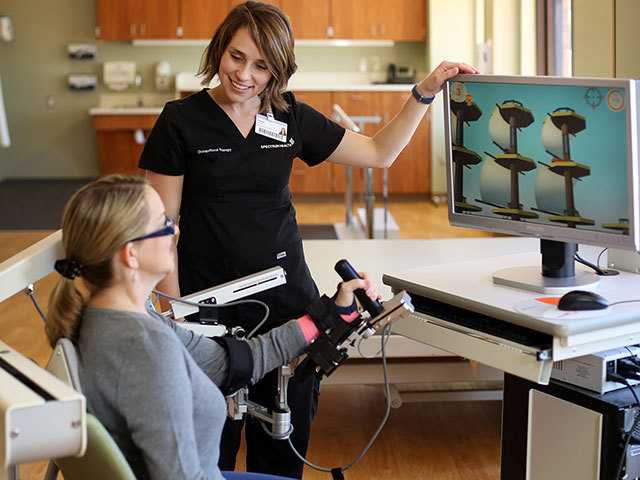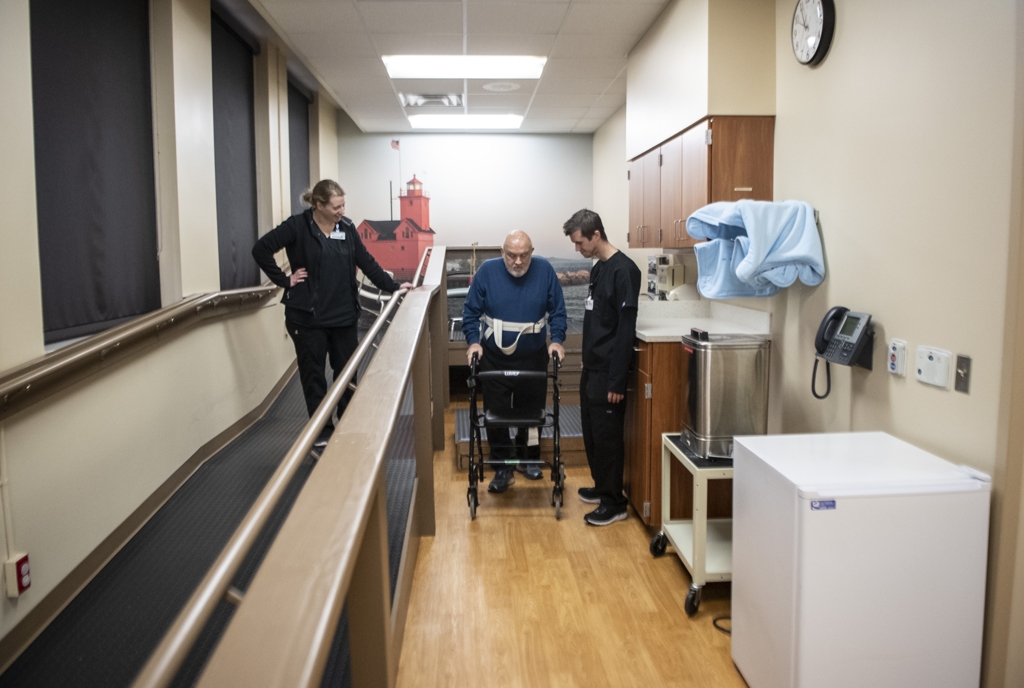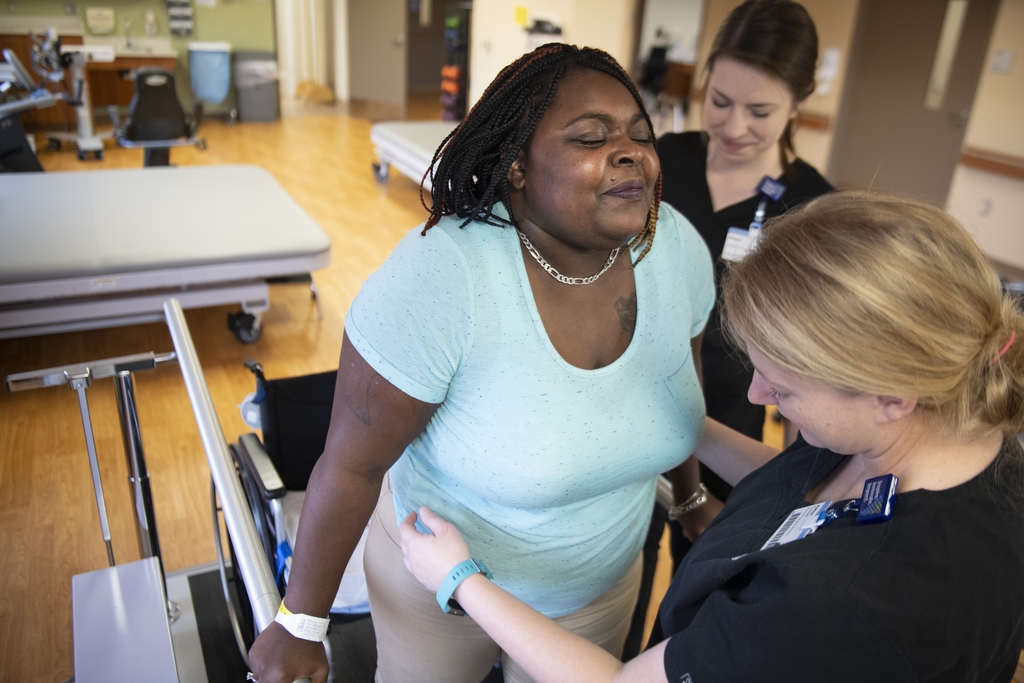Be Supported, Always
Schedule a Tour

What to expect at inpatient rehabilitation
What to expect

Length of stay
On average, patients spend 12 to 14 days on our rehabilitation unit, which is consistent with the national average of 13 days (eRehabData, 2021-2022).
Amount and intensity of therapy
In an acute inpatient rehab hospital you’ll receive a minimum of three hours per day of intense therapy services which will occur five days a week unless the physician recommends a variance. Included in the three hours are physical, occupational, and speech therapy. Advanced technologies and therapeutic approaches are available within this level of care.
Physician involvement
Physician care is provided 24 hours a day, seven days a week. A rehabilitation physician and/or advanced practice provider will visit you at least three times per week to discuss your goals, treatment progress, discharge plans and post-discharge care arrangements.
Nursing care
Nursing care is provided 24 hours a day, seven days a week by registered nurses as well as Certified Rehabilitation Registered Nurses (CRRN). The nurse-to-patient ratio is four to six patients.
Admission criteria
- Ability to participate in three hours of therapy per day, five days per week.
- Need for physical therapy and occupational therapy.
- Medical condition that required daily physician management, which may include patients who have experienced stroke, brain injury, amputation, trauma, spinal cord injury or burns.
- Ability to return home or to the community.
Understanding the journey

What does my journey look like?
Welcome to the Grand Rapids Hospitals Rehabilitation Unit located in Blodgett Hospital. Our goal is to help you recover safely and quickly so that you can return to the activities you enjoy. The moment you enter our rehabilitation center, we begin planning for your return home. During your stay, please use your provided handbook(s) as a resource for ongoing education and information.
Setting goals and achieving outcomes
Establishing meaningful goals for your rehabilitation is an important step to your recovery and your involvement in this process is key to your success. Your care team will meet with you to discuss your abilities and limitations and will help you set goals that meet your needs and desires.
Ongoing communication- understanding the plan
You, the patient, are the center of the treatment plan; therefore it is important that you and your support system feel well informed about the care you are receiving, your diagnosis and your progress toward discharge. Open communication between you and the care team in achieved through your daily interactions with the care team members. Additionally, your rehabilitation physician and/or advanced practice provider will visit you three times a week. If you or your support system have additional questions or concerns that would be better addressed during a scheduled meeting, please notify a member of the care team to promptly respond to your request. Our goal is to ensure all questions about your care, education you have received and recommendations for discharge are answered so that you feel equipped to return home and back to your community.
Rehab and rest
During your stay, you will participate in at least three hours of therapy per day, five days per week, which requires tremendous effort. Because optimal healing and recovery also requires rest, you should plan to dedicate one full day of rest during each week of your stay. You should also participate in one day of activity other than rehab. This healthy balance of rehabilitation and rest will help you recover in a safe and timely manner.
Caregiver training- new information
A caregiver is someone you know and trust to help you manage your care needs after you leave inpatient rehabilitation. Your caregiver may be a family member, friend or neighbor. If no one is available or you need care beyond the ability of friends and family, we may be able to help. Caregivers are encouraged to participate in education and training throughout your stay. Depending on your needs, your team may schedule a time to train your caregiver to ensure a safe transition.
Education
It is important for you to learn about your condition and the role that rehabilitation plays in your recovery. You can anticipate daily education throughout your rehab stay, as well as focused education on how to manage your condition and medications.
Safe transitions: The next step in your journey
As you prepare to leave the inpatient rehabilitation setting, the care team will help you practice important transitional skills such as getting in and out of a car or managing your own medications. Our inpatient rehab programs have a kitchen and living space designed to practice skills to be safe in your next environment. A home evaluation may need to be conducted to assess safety and mobility within your home environment. If a home evaluation is needed, your care team will schedule a visit to your home and help make necessary preparations and adjustments to properly prepare you and your family for a safe transition home


